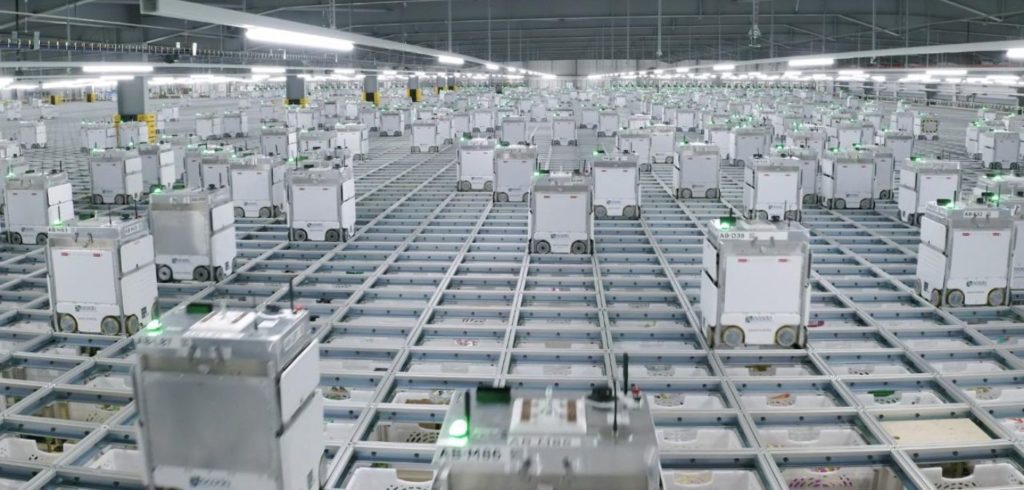Ocado Group has invested in Oxford-based autonomous vehicle technology company Oxbotica as part of a commercial partnership to reduce the costs of last-mile delivery and other logistics operations.
The online grocery platform and solutions provider has invested £10m in Oxbotica as part of its latest Series B equity funding round, which was led by BP Ventures and included other financial investors in the USA, China, UK and Australia.
Ocado will now take a seat on Oxbotica’s board and both companies will collaborate on hardware and software interfaces for driverless vehicles.
The ultimate aim of the collaboration is to reduce costs for retailers who use the Ocado Smart Platform (OSP) and enhance retailers’ customer value proposition by accelerating the shift to EVs.
The two companies plan to achieve this by enhancing and integrating Oxbotica’s autonomy software platform into a variety of vehicles.
Potential use cases range from vehicles that operate inside of Ocado’s Customer Fulfilment Centre (CFC) buildings and the yard areas that surround them, to last-mile deliveries and kerb-to-kitchen robots.
Ocado will build teams of engineers within its existing Advanced Technology division, which is independent from the engineering team that develops core OSP software and automation, to work with Oxbotica on these use cases.
Initial development work will focus on UK operations, and will then extend to international markets where Ocado’s partners operate.

Alex Harvey, chief of advanced technology at Ocado, said: “We are excited about the opportunity to work with Oxbotica to develop a wide range of autonomous solutions that truly have the potential to transform both our and our partners’ CFC and service delivery operations, while also giving all end customers the widest range of options and flexibility.”
As part of the collaboration, Ocado will outfit a subset of its delivery vans and warehouse vehicles with data capture capabilities, which may include video cameras, lidar, radar and other sensing devices.
Ocado will make this data available to Oxbotica to train and test its technologies, which will then inform Ocado as to what opportunities exist and where best it might take advantage of these new partnerships.
According to Ocado, moving finished orders from its CFCs to so-called ‘spokes’, where they are then cross-docked to delivery vans, currently represents approximately 1.5% of sales in the UK. while the cost of final-mile delivery is approximately 10% of sales. Labour reportedly represents approximately 50% of these costs.
Beyond potential cost savings within its core operations, Ocado said it sees significant opportunities to improve its partners’ customer proposition by being better able to respond to peak delivery demands, reducing the cost-to-serve of its immediacy proposition, and accelerating the shift to electrically-powered vehicles, thereby improving fleet sustainability and reducing environmental impact.
For both regulatory and complexity reasons, Ocado said it expects that the development of vehicles that operate in low-speed urban areas or in restricted access areas, such as inside its CFC buildings or within its CFC yards, may be realised sooner than fully-autonomous deliveries to consumers’ homes.
However, Ocado still expects to see the first prototypes of some early use cases for autonomous vehicles within two years.
Ocado and Oxbotica first began working together in 2017, when the two companies conducted a two-week trial using an early prototype delivery vehicle doing autonomous deliveries in Greenwich, London.




